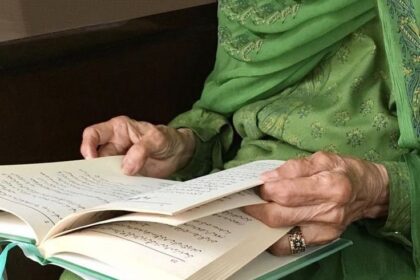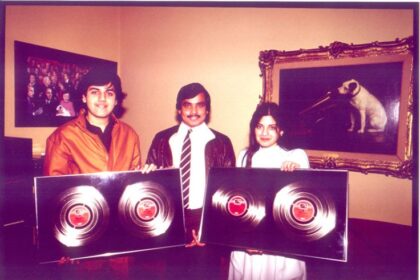Grief is weird. No one really tells you how weird it is.
The funny thing is, growing up, I thought grief was just for death. Turns out it’s for every time you lose something you thought you’d have forever.
It’s the friend you thought would always be there, until suddenly they weren’t.
One day you’re laughing at inside jokes, planning the future together, and the next it’s like you don’t even speak the same language anymore.
And no one talks about it — how much it hurts when a friendship dies.
How you still scroll past their posts and pretend you’re fine.
How do you still think they’d love this before you remember you don’t tell them things anymore?
Grief is sitting with memories that feel like they belong to someone else now.
It’s wondering if you could’ve saved it if you had been better, stronger, or different.
It’s hating them and missing them at the same time and not knowing which one hurts more.
Grief is rejection.
It’s hearing “no” when you gave everything you had.
It’s feeling not good enough, not smart enough, and not wanted enough.
It’s standing in front of a closed door, hands bleeding from knocking too long, realising no one’s ever coming to open it.
It’s the version of yourself you dreamed of — the one you thought you were becoming — slipping through your fingers.
It’s mourning the futures that will never happen, the versions of you that won’t exist now.
Grief is change.
It’s watching your childhood home get sold.
It’s packing up your room and realising the walls won’t remember you.
It’s seeing your parents get older.
It’s noticing you’re not a kid anymore, and you can’t go back, even if you want to.
Grief is goodbyes you never got to say.
It’s people you didn’t realise were slipping away until they were already gone.
It’s losing parts of yourself.
The fearless parts.
The innocent parts.
The parts that used to believe some things lasted forever.
Grief is getting your heart broken and realising love doesn’t always mean staying.
It’s loving someone with everything you have and still not being enough to make them stay.
It’s asking yourself, over and over, what you did wrong.
It’s wishing you could un-know someone and un-feel everything you ever felt, just to stop the bleeding.
Grief comes in all forms.
It doesn’t need permission.
It doesn’t wait for the right time.
It crashes into your life, wrecks your plans, and leaves you to figure out how to breathe again.
And the worst part?
Most of the time, no one sees it.
You walk around with a broken heart hidden under your hoodie.
You sit in class. You laugh at jokes. You turn in assignments.
And no one knows you’re carrying a whole funeral inside your chest.
Grief is love with nowhere to go.
All the love you saved up — for a friend, for a dream, for a future, for a person — and suddenly there’s no one to give it to.
So it spills.
Into late-night crying.
Into journals you don’t let anyone read.
Into songs that wreck you.
Into long walks where you don’t know if you’re running from something or toward something.
And the truth is — you don’t ever really “get over” it.
You just learn to carry it.
You learn to make space for it.
You learn to live with it.
You learn to let it soften you instead of harden you.
Grief is proof you loved.
That you cared enough for it to hurt this much.
And maybe — maybe that’s something beautiful too.
Maybe the pain is just love refusing to die.
Maybe carrying it forward is how we honour everything we lost.
Maybe we grieve because we dared to love this world with our whole hearts.
And even though it broke us —
We loved anyway.















